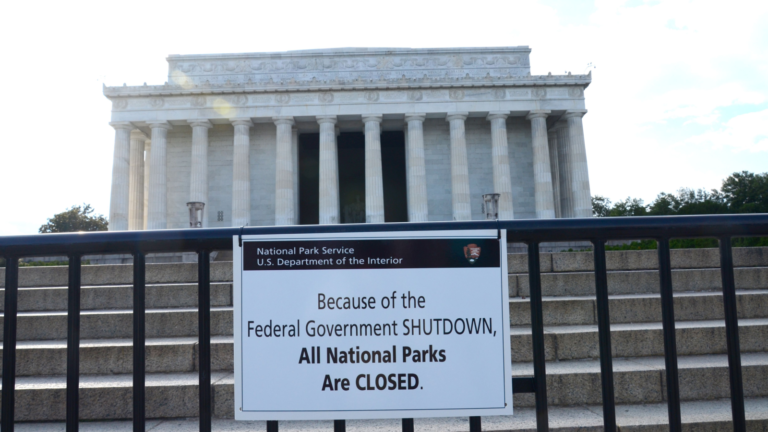Lawmakers in Washington, D.C., are scrambling to ensure continued funding of the federal government and avert a near-total government shutdown as a Sept. 30 deadline barrels toward Congress.
Politicians on both sides of the aisle have two weeks to come to an agreement and pass legislation in both the House of Representatives and Senate on continued federal funding or risk a government-wide shutdown that could prove costly for both the economy and stock market.
A Congressional Standoff Is Putting Pressure on Stocks
A government shutdown is looming as Republicans demand large spending cuts that are unlikely to pass in the Democratic-controlled Senate. The Biden administration in August called on Congress to pass a short-term resolution to keep government funding at current levels while negotiations on future spending continue.
The House Freedom Caucus, which represents the most conservative wing of the Republican Party, is calling for spending cuts of $1.47 trillion for fiscal year 2024. Democratic leaders, and some Republicans, such as Senate Minority Leader Mitch McConnell, have called the proposed budget cuts a non-starter. It falls to House Speaker Kevin McCarthy to try and bridge divides within his own Republican Party and negotiate compromises with Democrats in Congress and President Joe Biden himself.
The clock is ticking.
A government-wide shutdown would lead to furloughed federal workers, the closure of essential agencies such as the Internal Revenue Service (IRS), and a halt to essential programs, including the processing of Social Security checks that millions of retirees depend on. History has shown that a government shutdown could also have a negative impact on the stock market.
While government shutdowns don’t always harm stocks, the last one that occurred in 2018-19 was very damaging to investors. The benchmark S&P 500 Index fell 9% in the lead-up to the U.S. government shutdown that began on Dec. 22, 2018, marking the worst December since 1931 for the market. Stocks rallied the following month as lawmakers negotiated, and the government shutdown ended on Jan. 25, 2019, after 35 days, in what was then the longest and costliest shutdown in Congressional history, taking $3 billion out of the U.S. economy.
A Complicating Factor & Potential Opportunities
A government shutdown now would come at a sensitive time for both the economy and stocks. With interest rates currently at a 22-year high and many economists forecasting a recession in 2024, a government shutdown in October could accelerate an economic slowdown that appears to already be underway. Another complicating factor this time around are the credit rating agencies. In August, Fitch Ratings downgraded the U.S. long-term credit rating to AA+ from AAA, citing concerns about fiscal deterioration and an erosion of governance.
Specifically, Fitch singled out “repeated debt-limit political standoffs and last-minute resolutions” in Congress as an issue that has “eroded confidence in fiscal management” within the U.S. The downgrade caused outrage among political and business leaders and led to gyrations in the stock market. A government shutdown in the coming weeks could lead to further credit rating downgrades that negatively impact confidence in the U.S. economy and put pressure on stocks.
A government shutdown would likely cause heightened uncertainty in a stock market that is looking for direction after a big rally in this year’s first half. Since August, all three major U.S. indices have been trading sideways. In a note to clients, investment bank Morgan Stanley points out that government shutdowns have historically had a “minimal negative impact” on U.S. stocks.
Morgan Stanley encourages investors to look for opportunities in the defense and healthcare sectors that are dependent on government contracts, writing: “With those sectors currently underperforming the S&P 500, the prospect of a shutdown may present an attractive buying opportunity.”
What’s Next? Will the Government Shut Down?
Government leaders in Congress will continue negotiating to try and reach a resolution and avoid a government shutdown as the government reaches the end of its fiscal year on Sept. 30, with operational funding expiring at the end of that day.
Key dates to keep an eye on include Sept. 27, which is a self-imposed deadline for the House of Representatives to vote on a bipartisan infrastructure bill, and mid-October, which is when the federal debt ceiling will once again be reached. A first-ever default on federal debt could occur if Congress does not raise the ceiling on the government’s debt limit within a month, a development that would be devastating to markets around the world.
On the date of publication, Joel Baglole did not have (either directly or indirectly) any positions in the securities mentioned in this article. The opinions expressed in this article are those of the writer, subject to the InvestorPlace.com Publishing Guidelines.

